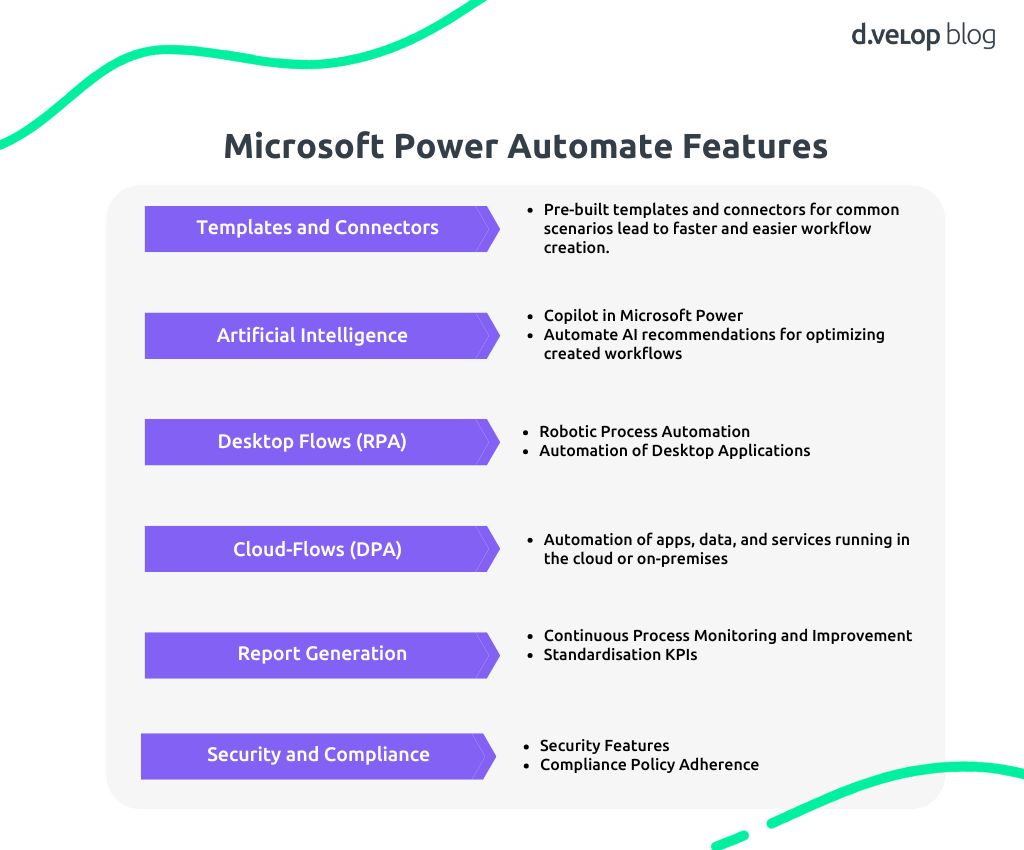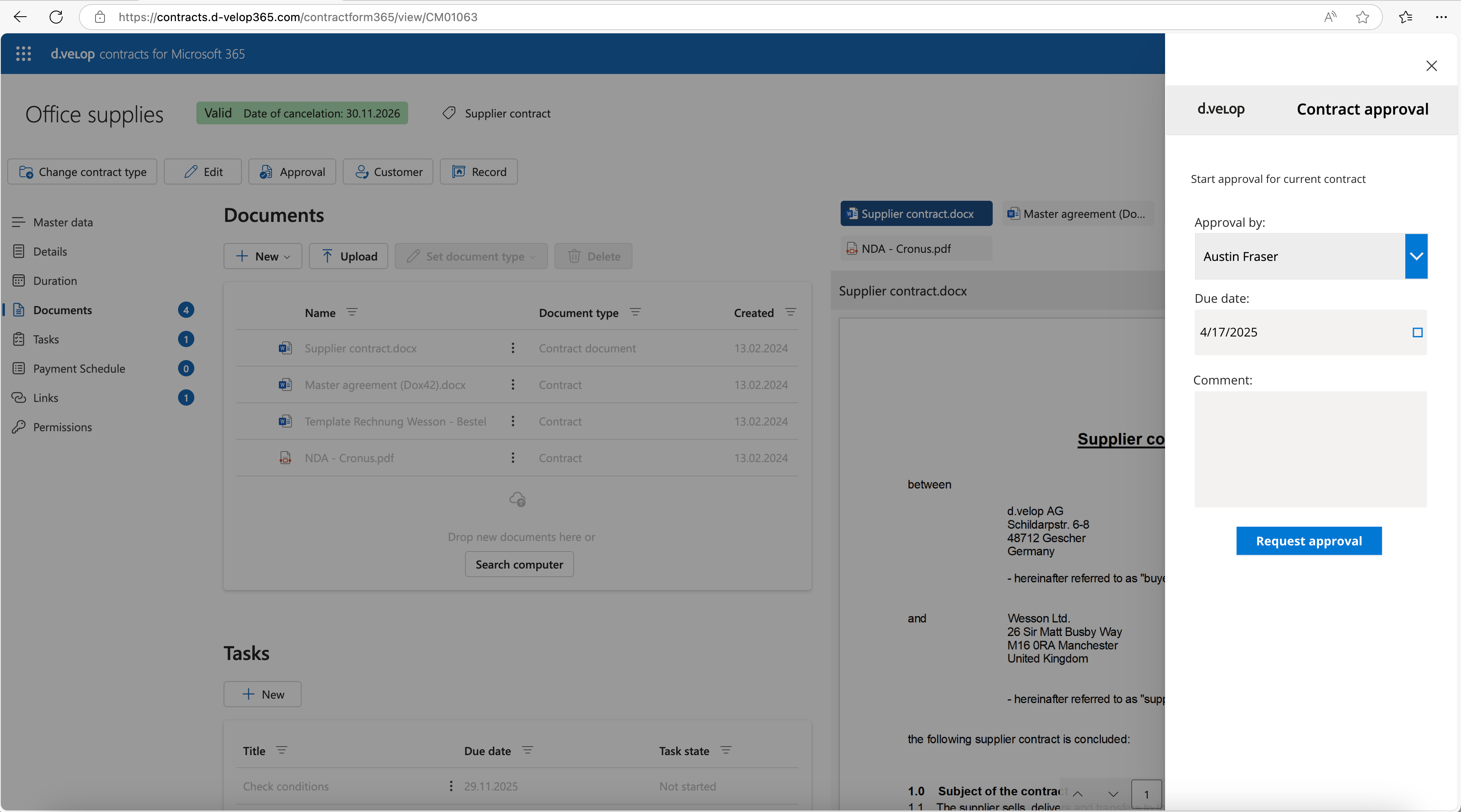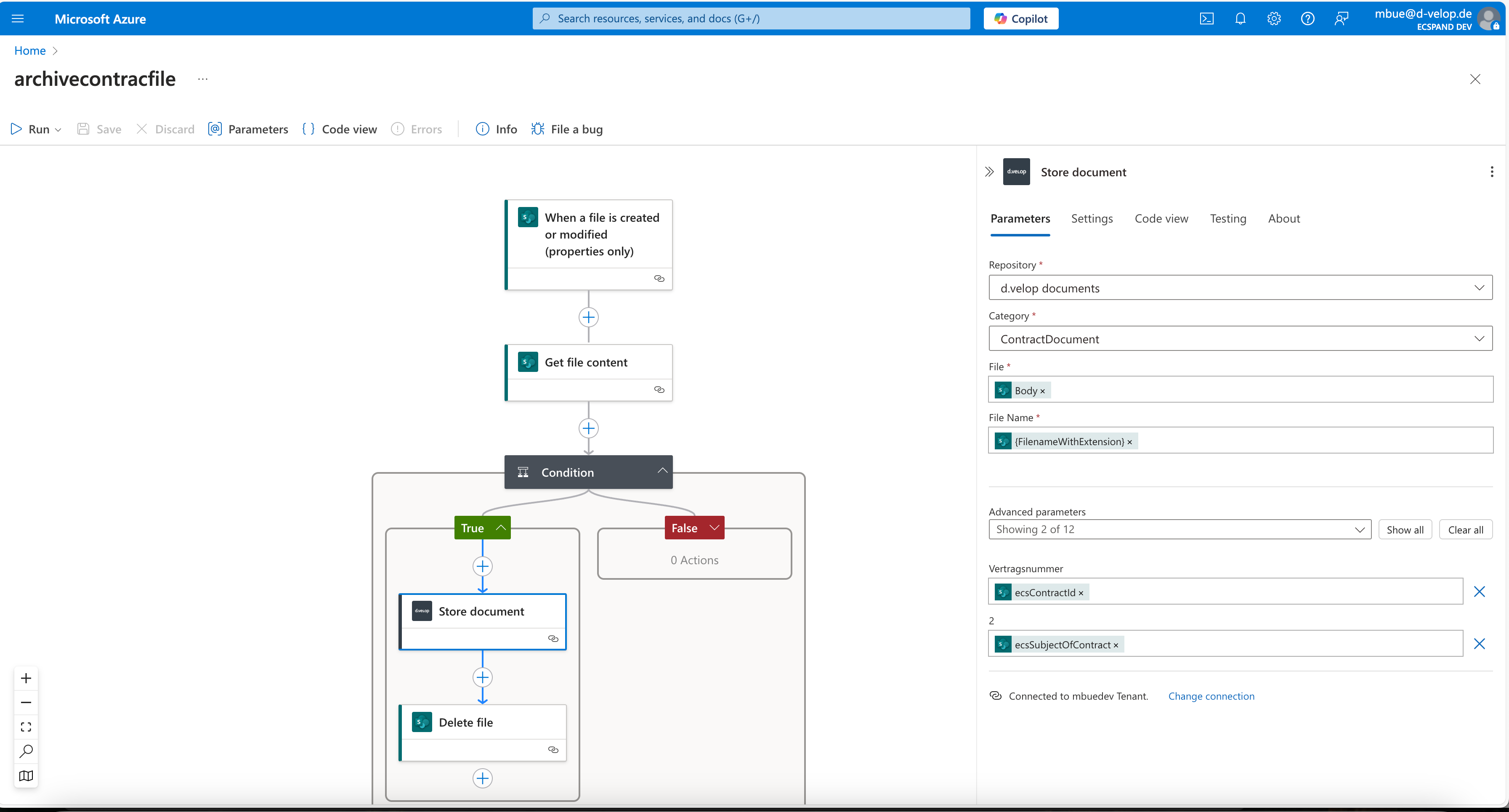In the past, many Microsoft 365 customers used SharePoint 2010 and 2013 workflows for their business processes. However, these solutions are being phased out. Support for SharePoint 2010 workflows ended in November 2020. As part of the transition to modern and optimised solutions, the SharePoint 2013 workflow will also be discontinued. Since April 2024, new tenants can no longer use these workflows. Support for SharePoint 2013 workflows will be completely discontinued from April 2, 2026.
Nevertheless, workflows in Microsoft 365 are still needed. With Microsoft 365 Power Automate (formerly known as Microsoft Flow), there is a more innovative way to create workflows. Power Automate offers a flexible solution for numerous use cases in the area of Microsoft workflows. Learn in the article how Microsoft Power Automate can automate your processes, its features, but also limitations in application, and what advantages it offers you in connection with the d.velop platform.
What is Power Automate?
Microsoft Power Automate is a powerful tool that enables users to automate workflows and simplify recurring tasks. With Power Automate, both simple and complex processes can be created without programming knowledge. It integrates seamlessly with various Microsoft services and third-party apps, making it possible to connect data and trigger actions to enhance efficiency and productivity. Whether it’s automatically sorting emails, synchronizing data between systems, or sending notifications – Power Automate offers a flexible solution for numerous use cases.
Advantages of Workflows with Microsoft Power Automate
In today’s business world, automated workflows make a significant difference when it comes to time and efficiency. Microsoft Power Automate offers a variety of benefits that can optimise business processes and increase productivity.
- Automation of Business Processes: The system can automate recurring tasks and processes, reducing manual intervention and saving valuable time.
- Improved Collaboration: Seamless integration with Microsoft 365 services (such as Outlook, Teams, and OneDrive) allows documents and information to be easily shared and collaboratively edited.
- Transparency: Users can monitor the progress of tasks and better understand processes.
- Flexibility: Workflows are adaptable and can be customised to meet the specific needs of a business.
- Connectivity: Digital processes connect various systems. With existing connectors, data from leading applications (e.g., ERP, CRM) can be utilised in workflows.

The Limitations of Microsoft Power Automate
Microsoft Power Automate offers many advantages, but there are also some challenges and limitations to be aware of. Here are the key aspects:
- Action Limits: A single flow can contain a maximum of 500 actions. For more complex workflows, this can lead to performance issues.
- Licensing: The performance of a flow depends on the license being used. There are different plans from which a user can choose.
- Complexity: Power Automate is ideal for simple tasks, but achieving desired results can be challenging for more complex scenarios. Additionally, integrating various systems and applications can be complex, especially in companies with a wide range of tools. It may require time and expertise to ensure all systems work together smoothly.
- Limited Support for Some Services: Not all third-party services are fully compatible with Power Automate. In such cases, it may be necessary to seek alternative solutions or additional integrations.
Microsoft Workflows and d.velop documents –
An ideal combination
With d.velop documents for Microsoft 365, your data in SharePoint can be optimally structured. Users get a complete view of the documents in a structure that corresponds to your business objects, such as customer, supplier, or building files.
Microsoft Power Automate complements business processes in d.velop documents for Microsoft 365, for example, in the approval or creation of new documents.
Example: In the context of facility management based on d.velop documents for Microsoft 365, a user creates a new service case using a Power App. A Microsoft workflow based on Power Automate processes the service case.
Digital Contract Management with Microsoft Workflows
d.velop contracts for Microsoft 365 offers a solution for managing contracts within Microsoft 365. Never miss a deadline again with the deadline mechanism including notifications. Increase the transparency of your contract inventory through easy capture of all contract-relevant content and optimised search. Enhance efficiency in contract management through complete digitisation, from contract creation with template management to integrated digital signature with d.velop sign, and even to contract inventory evaluation.
In d.velop contracts for Microsoft 365, digital processes control internal contract approval with Power Automate. Additionally, Microsoft Copilot or AI efficiently analyse documents

Example: The responsible persons request the approval of a contract. After successful approval, the system updates the contract status accordingly.
Perfect Synergy: Microsoft Workflows and d.velop documents
With Microsoft Power Automate, users can utilise triggers and actions from Microsoft and various other providers to connect additional systems. d.velop provides triggers and actions to implement processes around the d.velop platform in conjunction with Microsoft 365. For example, users can archive documents from SharePoint in d.velop documents or sign them in OneDrive with d.velop sign.

Example: Archiving a contract document after the contract expires in d.velop documents.
Through the seamless integration of the d.velop platform into system applications, it is ensured that all digital processes, such as document or contract management, are legally compliant. Together, Microsoft workflows and the integration of d.velop solutions, such as document or contract management, save costs and increase efficiency in the company.
Request an individual software demo
Use d.velop technologies in your familiar Microsoft 365 environment. Have the possibilities demonstrated to you in a personalized live demo.
